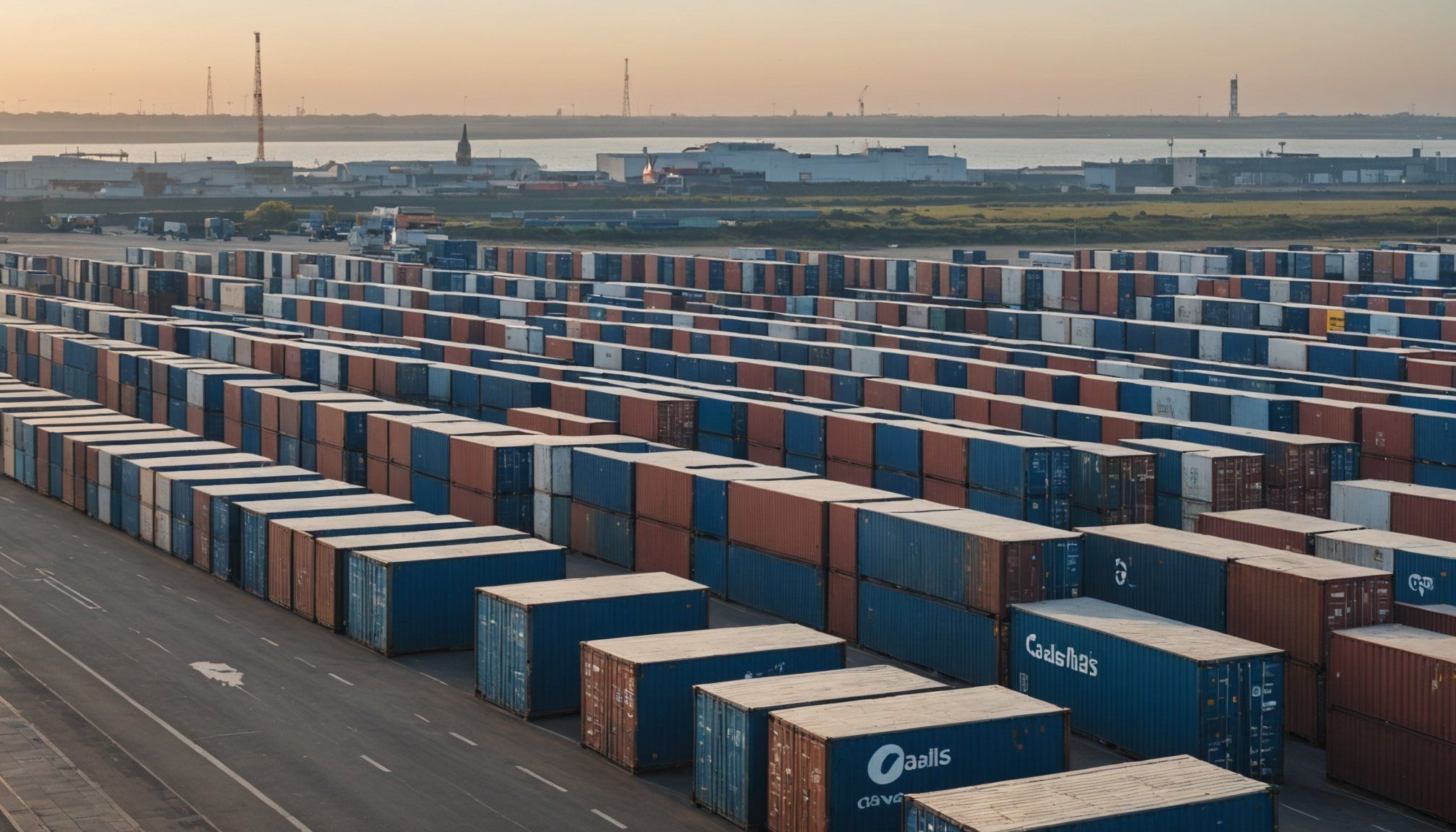Trading across Calais requires careful attention to customs compliance, especially in the post-Brexit landscape. Understanding and navigating new regulations can minimize delays and costs, ensuring the efficient movement of goods. With the integration of innovative technologies and best practices, hauliers can streamline operations. Discover essential strategies, practical tips, and real-world examples that will simplify your customs processes and enhance your cross-border trade experience.
Understanding Customs Compliance for Trade Across Calais
Navigating the intricate landscape of customs compliance is crucial for seamless trade across Calais, especially post-Brexit. As trade regulations evolve, businesses must adhere to precise compliance regulations for Calais trade to avoid disruptions. The necessity for customs procedures for trade, including customs declarations for all goods, has heightened. Traders must finalize accurate documents, such as customs declaration forms, commercial invoices, and certificates of origin, to ensure compliance.
Have you seen this : Unlocking Enhanced Customer Service: The Power of Chatbots for UK Retailers
Technological advancements are transforming the customs process into a more efficient system. Tools like the Stena Line’s SmartGate promote streamlined customs compliance through self-service check-ins, significantly reducing wait times. Similarly, LaShuttle’s investments in biometric kiosks and EES control bays enhance security while catering to the EU’s Entry/Exit System requirements. These innovations demonstrate significant progress in managing cross-border logistics efficiently. Incorporating technology in customs compliance procedures and seamless trade processes is vital.
For detailed guidance and services in navigating these complexities, <https://www.asalinks.eu/> offers comprehensive support, particularly for compliance challenges across the Calais border. This ensures smoother operations and bolsters trade facilitation strategies, making it a valuable resource for traders looking to enhance their supply chain management amidst new regulatory environments.
In parallel : Unlocking Success: Effective Content Marketing Strategies for UK Freelancers to Attract Clients
Best Practices for Customs Documentation
Ensuring smooth trade across Calais requires attention to detail and compliance with customs regulations. Proper documentation is key to avoiding delays, minimizing errors, and ensuring efficient cross-border operations. This guide highlights essential practices to streamline customs procedures and support seamless trade.
Essential Customs Documents Required for Trade
Navigating customs procedures for trade requires meticulous attention to customs documentation essentials. Among the primary documents needed, customs declaration forms are critical, detailing the type, quantity, and value of goods. Additionally, traders should maintain commercial invoices to verify transaction specifics, while certificates of origin are necessary to establish goods’ origin, influencing applicable customs tariffs. Ensuring these documents align with import/export requirements Calais post-Brexit simplifies border customs processing.
Common Pitfalls in Customs Documentation and How to Avoid Them
Errors in customs documentation, such as misvaluation or misclassification, pose obstacles in customs compliance. To mitigate these risks, businesses can adopt structured trade facilitation strategies—such as regular audits of documentation practices—to ensure data accuracy. Leveraging technology solutions like electronic customs filing can streamline submission processes, reducing manual errors. Incorporating effective trade management tools and engaging with customs brokers in Calais can further safeguard against compliance lapses.
Role of Customs Brokers in Streamlining Documentation Processes
Customs brokers in Calais play a pivotal role in enhancing supply chain efficiency. With their expertise in local compliance regulations for Calais trade, brokers facilitate accurate customs declarations, minimizing delays. Through comprehensive knowledge of trade routes and managing customs duties, they assist in optimizing logistics, ensuring all necessary supporting documents for customs clearance are prepared. By integrating technology into their services, brokers help in streamlining customs compliance effectively.
Navigating Customs Compliance Post-Brexit
Post-Brexit trade regulations have brought significant changes to customs compliance for businesses operating between the UK and EU. Navigating these new rules, especially for goods crossing through Calais, requires careful planning and adaptation. Understanding the complexities of documentation, tariffs, and border checks is now essential for ensuring smooth trade operations.
Changes in Customs Regulations and Their Implications for Traders
The Brexit impact on customs has been significant, introducing complexities in customs procedures for trade across the Calais border. With the UK no longer part of the EU’s single market, traders must now manage detailed customs documentation essentials, such as accurate declarations and tariffs. It’s crucial for traders to understand the specific compliance regulations for Calais trade and adhere to new rules to avoid obstacles in customs compliance operations.
Strategies for Effective Customs Risk Management
To manage customs risk, businesses must develop robust compliance strategies. Engaging with experienced customs brokers in Calais can provide valuable insights into the local regulatory framework, aiding in streamlining customs compliance. Implementing best practices for customs compliance, such as regular staff training and comprehensive documentation, ensures effective trade and minimizes risk.
Leveraging Technology to Ensure Compliance and Reduce Delays
Trade compliance technology solutions play a pivotal role in enhancing compliance and reducing delays. Utilizing systems for electronic customs filing can automate documentation processes, simplifying customs declarations and reducing administrative burdens. Incorporating such technologies into trading logistics operations optimizes efficiency and enhances supply chain efficiency, providing a seamless cross-border trade experience.
Practical Insights for Efficient Cross-Border Trading
Post-Brexit trade regulations have brought significant changes to customs compliance for businesses operating between the UK and EU. Navigating these new rules, especially for goods crossing through Calais, requires careful planning and adaptation. Understanding the complexities of documentation, tariffs, and border checks is now essential for ensuring smooth trade operations.
Preparing for Customs Inspections: What Traders Need to Know
Understanding post-Brexit customs procedures for trade across Calais is essential for managing the complexities of cross-border logistics. An effective trade compliance program highlights the importance of precise customs documentation and pre-arrival customs processing. Compliance with EU regulations requires traders to stay informed about the latest compliance regulations for Calais trade and understand detailed import/export requirements Calais.
Strategies for Minimizing Customs Delays and Costs
Navigating obstacles in customs compliance involves developing strategies that facilitate smooth transitions through ports. Traders should leverage trade facilitation strategies and implement data management for customs compliance. Utilizing customs brokers in Calais for electronic customs filings can help streamline customs compliance and avoid hefty penalties. Moreover, understanding customs tariffs explained well can aid in managing customs duties efficiently.
Understanding Customs Tariffs and Their Impact on Trade Operations
Customs tariffs explained for cross-border trading include numerous elements such as harmonized system codes, international trade agreements, and VAT implications in cross-border trade. Knowledge of trade documentation standards and federal customs regulations is necessary for effective trade management tools. Additionally, trade compliance technology solutions can automate customs processes, enhancing supply chain efficiency.











